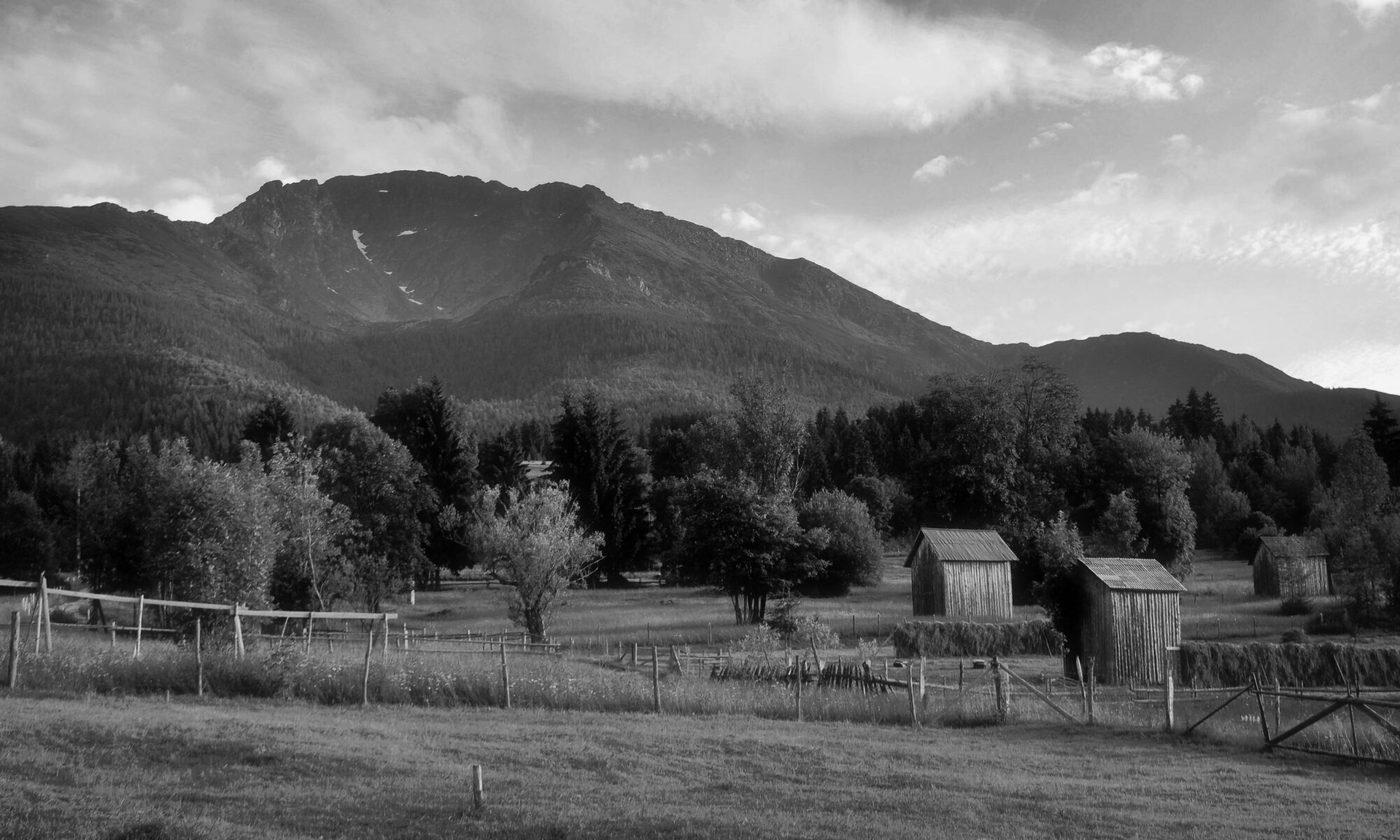THE TRACKLESS MOUNTAINS. Not one tourist marker sullies this mountain range, not one tourist cabin. Only military fences from another era lie toppled and disused below the grassy border. We hike along the old frontier for days. To the north, all of eastern Carpathian Ruthenia lies at our feet, the ancient comitat of Máramaros, the Tisza River valley, the highlands of [1] Nikola Šuhaj, snow covered Mount Hoverla, mighty Pip Ivan Peak. The Romanian side of the former Hungarian territory breathes fresh and green – endless forests, long valleys, pasture lands. Near the summit of Farcău Mountain, a lake lies where horned oxen drink each evening among blackbird flocks and windblown meadows. Beyond the old border tripoint of Stoh, even the uprooted border markers seem different: cast-iron posts lie, pink and decorative, amid the grass and wildflowers along the old Romanian-Polish frontier. And still we have not met a soul. Over the course of five days, we meet seven shepherds and two border guards who we appease with handwritten authorizations and homemade stamps – such documents work wonders in those deserted mountains! There is little water and few people atop the ridges that make up the western edge of Máramaros, and the border there is at times unmarked, at others secured by five layers of fencing, as the Rodna Mountains hem in the southern horizon. According to a sixty-year-old general map, we are scarcely clinging to a wild, forested ridge between the Ruscovei and Vaser valleys. Miserable forest crossroads fade into the undergrowth; this is a trackless land. We wander through rainstorms, Carpathian mists, and steep, rocky, rain-soaked pine thickets. We bed down near forest peat bogs, uprooted by wild beasts. We sleep near grouse droppings, wolf scat, sheep cadavers, horse bones strung across crooked pines: how bleak those rainy nights are! Huts emerge from the mountain fog, inhabited mostly by Rusyns, whose language is remarkably similar to Czech. They are kind, chasing the dogs away and giving us sheep’s milk and cheese – sweet and salty. But most beautiful of all is the music they play on their long fujaras to accompany us on our way. They blow their eastern song into great, glossy, homemade pipes until we are forever lost to sight among the junipers, scrub-pines, and trackless forests of the Maramureş Mountains.
[1] Nikola Šuhaj was an outlaw and local folk hero from Carpathian Ruthenia.
